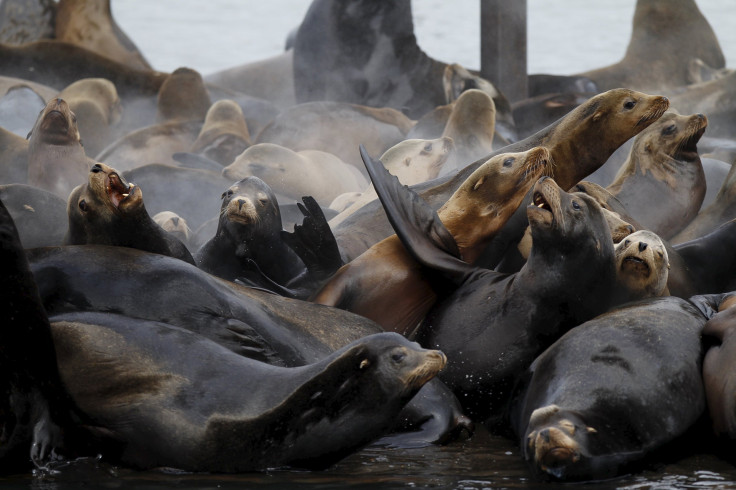Record California Sea Lion Strandings Top 2,250 So Far This Year

(Reuters) - At least 2,250 California sea lions, mostly pups, have turned up starving and stranded on beaches from Santa Barbara to San Diego so far this year, more than half of them last month alone, marking the worst such crisis yet documented for the marine mammals.
The tally, reported on Monday by the National Marine Fisheries Service, is nearly 10 times higher than the number of strandings during the first three months of last year and more than twice the number recorded in 2013, the sea lions' previous worst season on record.
Scientists believe the sea lions are suffering from a scarcity of natural prey that has forced nursing mothers to venture farther out to sea for food, leaving their young behind to fend for themselves for longer periods of time.
The shift in the food chain around the marine mammals' principal rookeries off Southern California is believed to be triggered by warming waters that are in turn caused by unusually weak winds along the West Coast.
Those winds normally help pull nutrient-rich cooler water from the depths of the Pacific closer to the surface, and with it larger supplies of sardines, smelt, anchovies, squid and other prey for the sea lions, said Michael Milstein, a spokesman for the Marine Fisheries Service.
The weaker winds and rising ocean temperatures have been occurring since 2013, when the agency declared an "unusual mortality event" for the sea lions due to a surge in strandings that was well above average.
Milstein said a team of scientists studying the phenomenon considers the elevated number of strandings during the past three years to be one continuous trend, even though the tally so far this year far exceeds anything previously documented.
The fisheries service, an agency of the National Oceanic and Atmospheric Administration, began closely tracking sea lion strandings off California in 2004, he said. The tally of stranding for March, 1,050, represents the largest number recorded for a single month since then.
© Copyright IBTimes 2024. All rights reserved.





















